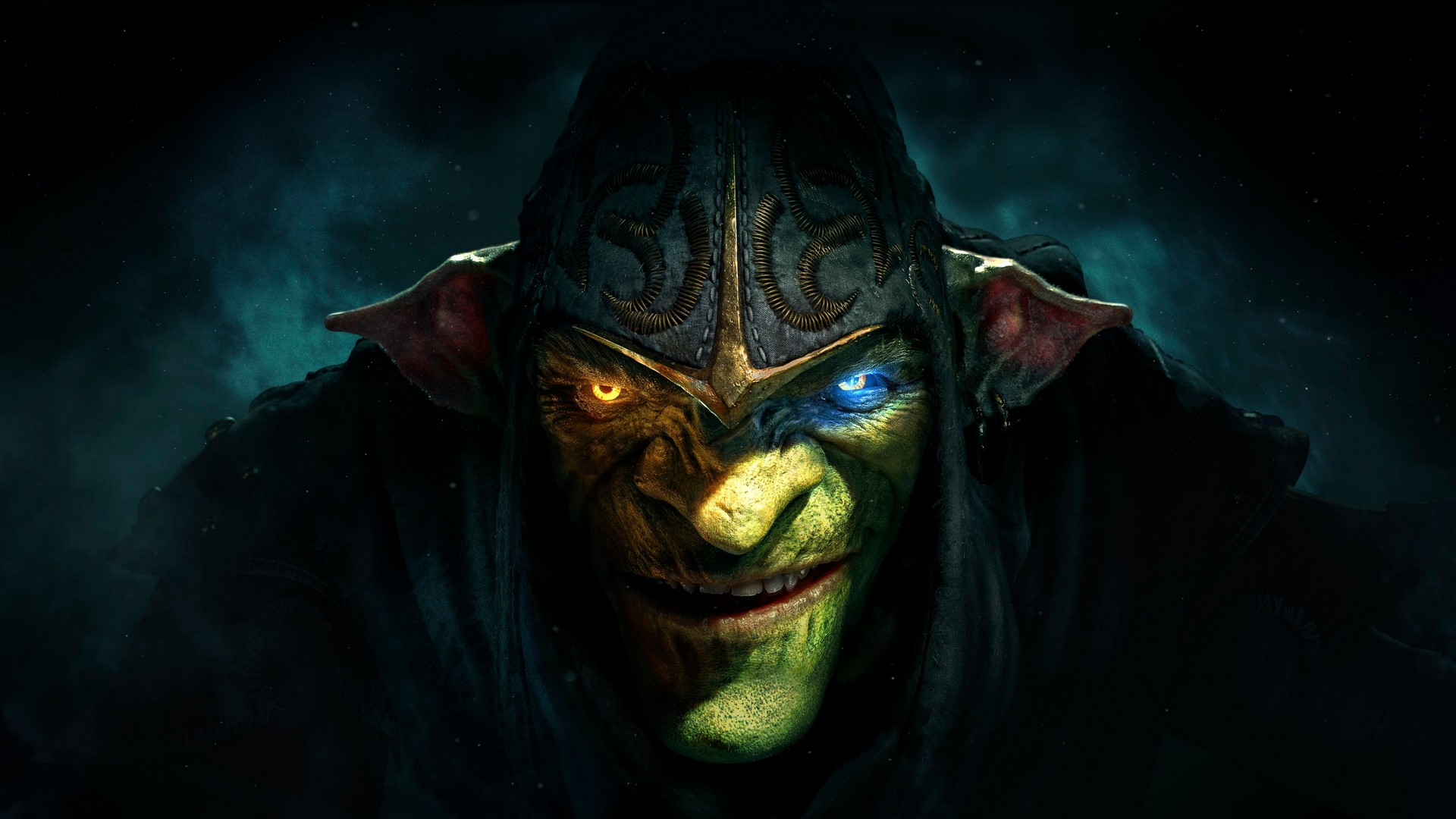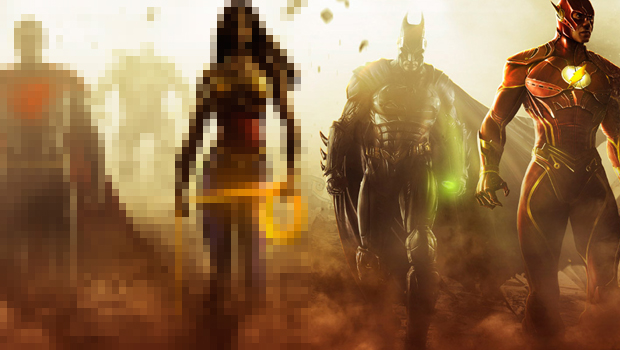
Its a bird! Its a plane! Its a lot of games
Injustice: Gods Among Us is nearly upon us, which means its nearly time for more comic book heroes and villains to strap on their spandex and enter the realm of video games once again. And while weve found the forthcoming DC Comics fighter to look plenty promising thus far, there is one thing we can now say about it for sure: It isnt the first comic book game, and it definitely wont be the last.
Thats right: Comic book games have had a long and varied history, altogether spanning a little over three decades in total. A cursory glance can tell you that these games havent always been good, but theyve been there, and a few of them have managed to carve out a special ink-splashed place in the hearts of many players. So lets take a look back. Theres been an absolute overload of comic book games over the years so we wont be able to hit them all in one feature. But we can run through the most significant moments and titles in this history, the kinds that brought comic book games to where they are today. Lets begin.
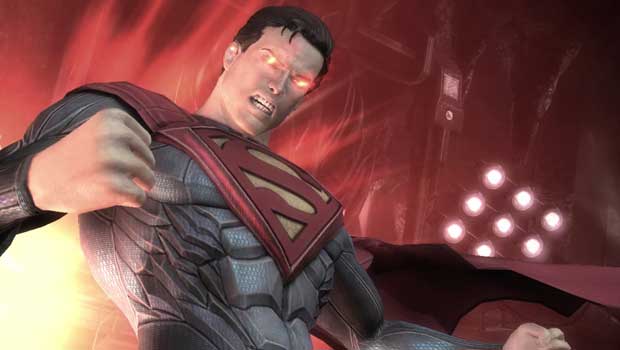
Bam! Pow! But first, a note
A quick note before we delve into this history: Unlike RPGs, first-person shooters, fighting games, or what have you, comic book games dont really constitute a genre of video games on their own. Instead, theyre more like a skin applied over existing genres. Think of it this way: RPGs have always been RPGs, and fighting games have always been fighting games, but comic book games have been RPGs, fighting games, platformers, point-and-click adventures, and just about every other type of game under the sun. Theyre primarily a form of licensed games, which are not beholden to any set mechanics or systems.
This genre potential fits because comic books often have traits that seem ready made for any video game--leading characters with charisma in both personality and combat, stables of supervillains that make for natural bosses, lived-in worlds with rich histories, etc.--so game creators of all sorts have tried taking advantage of that. But one side effect of comic book games malleability is that it makes chronicling their history a little uneven. Theres no clear progression of genre trends here, just a massive smattering of all kinds of comic book games strewn about the market; some good, but most bad. So again, well just try to stick to the most notable events here.
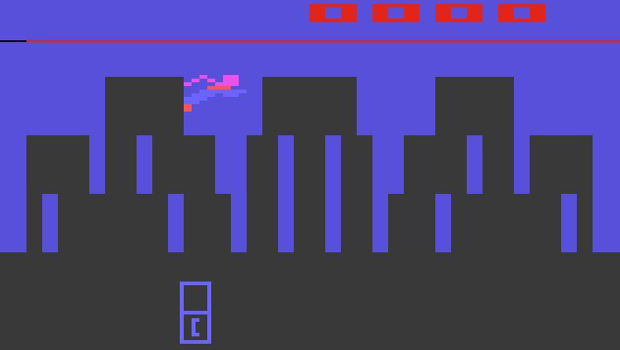
Superman soars onto early consoles
The earliest comic book game we could find starred perhaps the biggest name in comic books altogether: Superman. The first of six games in history to simply be titled Superman, this side-scrolling action-adventure game for the Atari 2600 was released in 1978 and saw Kryptons favorite son attempt to foil the plans of his megalomaniacal arch-nemesis Lex Luthor. As Kal-El, players had to repair a bridge destroyed by Luthor, subdue Lex and his goons, change back into their normal Clark Kent attire, and then make it to their job at the Daily Planet in the fastest time possible. X-ray vision was available as an extra power, and Lois Lane makes a cameo by healing Superman if he runs into any Kryptonite on his quest. It was even one of the first games to utilize a pause button. Sounds pretty straightforward, right?
Well, technically it was, but actually completing these simple tasks quickly was rough for anyone who didnt use the games instruction manual. The games chaotic, confusing and potentially seizure-inducing level layout was far from accessible and, this being the Atari 2600, it wasnt too easy on the eyes or ears either. It began a tradition of difficult-to-play Superman games that sadly continues to this day.
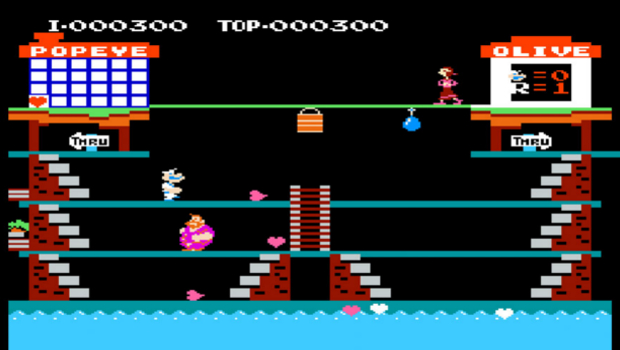
Popeye, Peanuts and The Smurfs are shown digital love too
We often think of fantastical superpowers and colorful spandex when we talk about comic book games, but many of the earliest comics-based games had their roots in non-superhero tales. More than a few of these were based on the popular funnies youd find in newspapers, and most of them went on to have various successors over the next couple of decades.
Nintendo, for one, released a Popeye arcade game in 1982 that played similarly to Donkey Kong, which makes sense considering co-designer Shigeru Miyamotos classic was originally inspired by the spinach-downing sailor man. The first of many games based on the Smurfs, an exceedingly simple platformer called Smurf: Rescue in Gargamels Castle, landed on the Atari 2600 and ColecoVision that same year. The pre-historic cavemen of B.C. got their own side-scrolling action game the next year with the release of B.C.: Quest for Tires for the Commodore 64 and other early consoles. Popular French comic Asterix started its decades-long series of games with a barebones puzzle-platformer on the Atari 2600 too. A Snoopy platformer arrived for the Commodore 64 in 1984, as did a multiplayer action game based on the Spy vs. Spy comic from Mad Magazine. Games about Garfield, Tintin and others were released during these early years as well. These titles werent always good, but they collectively broadened the scope of comic games in their heyday.
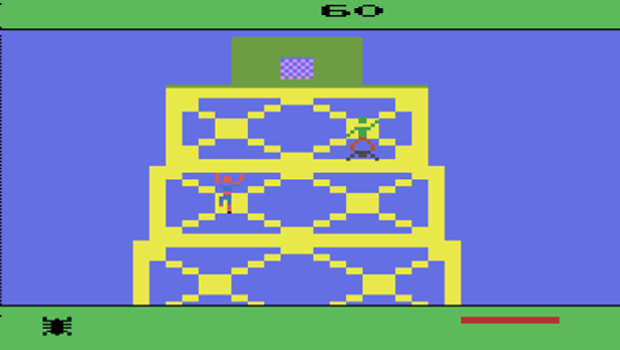
Spider-Man, Batman and others get in the game
Returning to the colorful superheroes, Superman got the ball rolling with his mediocre first game, but it wasnt long before the other big-name comic IPs got their own titles too. Spider-Man made his gaming debut in a self-titled platformer for the Atari 2600 in 1982. It had Peter Parker swinging his way up various buildings in an attempt to defuse the Green Goblins tactically-placed bombs, and kicked off a deluge of nearly 50 games that have since featured the famed webslinger--so many that we needed to rank the best Spider-Man games.
Batman premiered in a well-regarded 3D isometric puzzle-adventure game for the ZX Spectrum in 1986, while Captain America first starred in an odd, ugly and challenging action game called Captain America in: The Doom Tube of Dr. Megalomann for the Amstrad CPC, Commodore 64, Atari ST, and other consoles a year later. The largely frustrating 2D action title The Uncanny X-Men, meanwhile, marked the first of many games featuring Professor Xaviers merry band of mutants in 1989. None of the early comic book titles were particularly mindblowing, but a few were fun, and the collective popularity of their licenses opened the floodgates for more comic book games to arrive en masse over the next few decades.
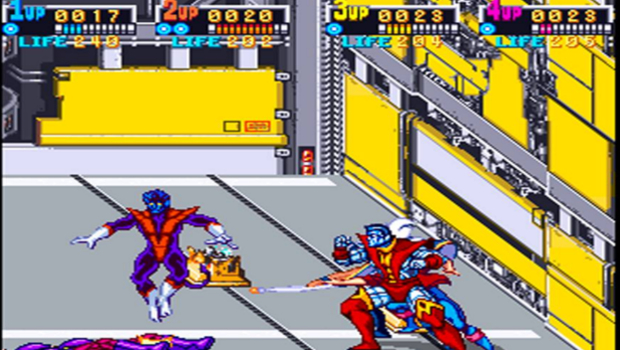
The rush of comic book games begins
And arrive they did. After the initial popularity of early comic-based titles, the late 80s and early 90s saw a truckload of comic book games from both familiar and unfamiliar IPs arise in arcades and on consoles. The recognizable titans of DC and Marvel continued to churn out often underwhelming Spider-Man, Superman, and Batman games, although other heroes like The Punisher, the Silver Surfer, The Flash, and the Hulk got an occasional shot at glory too (though their games werent all that good either).
Among these big names, a handful of highlights included the 1992 X-Men arcade game, which was a simple yet widely popular beat em up that sometimes came in a massive six-man cabinet; the 1993 X-Men 2D action-platformer for the Sega Genesis, which was notoriously difficult but satisfied fans with its good looks, soundtrack and variety of playable and support characters; the 1994 fighter X-Men: Children of the Atom (X-Men had a good little stretch here, if you couldnt tell) which set the stage for future crossovers like the great Marvel vs. Capcom series. On the non-mutant front, the 1993 adaptation of Batman Returns for the SNES offered stylish and balanced brawler action alongside actual music from the film. There was also Captain America and the Avengers and the 1991 Spider-Man: The Video Game.
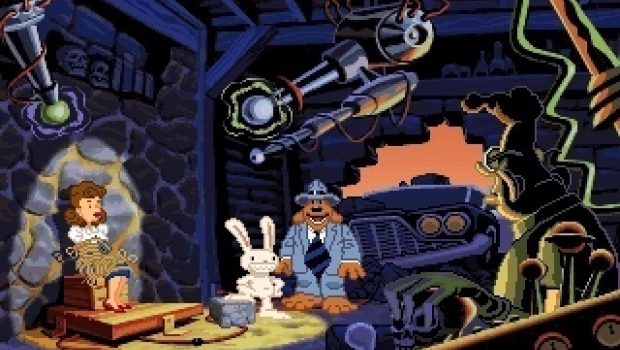
TMNT, Sam & Max and other IPs succeed
But while these higher-profile IPs had some successes to boast, many of the best comic book games of the time came from well outside the realms of DC and Marvel. Konamis 1989 take on Teenage Mutant Ninja Turtles for arcades is perhaps the most beloved beat-em-up of the era, for instance. It was exceptionally hard (and the NES port even more so), but its heroes in a half shell made the game a natural fit for fast and fun four-player co-op play.
LucasArts 1993 hit Sam & Max Hit the Road was another landmark, as the DOS point-and-click adventure title rose the Freelance Police above the pack with its charming script, brain-teasing puzzles, and an honest-to-goodness sense of humor. Like so many other licenses in this article, Hit the Road marked only the beginning of what would soon become a long-lasting franchise. These games--along with many other quality titles like beat-em-up Cadillacs and Dinosaurs or, later on, the influential N64 FPS Turok: Dinosaur Hunter--didnt need their source material to justify their existence. They were good games in their own right, and in some cases surpassed their comic book origins altogether.
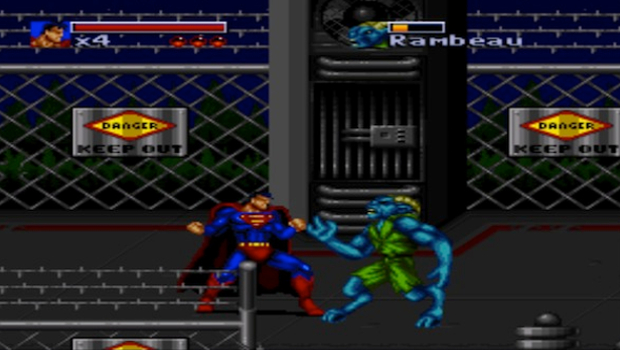
Comic book games tie in with other media
The tidal wave of comic book games was beginning to take shape in the early 90s, which makes now a good time to mention that these titles--like anything else--did not exist in a vacuum. This was evident in comic book games ever since Superman for the Atari 2600 debuted right around the time of the first Superman movie. Early arcade games like Liberator crossed lines too, as that one was based on Ataris short-lived Atari Force comic series. Nevertheless, the SNES/Genesis era saw a couple of particularly noteworthy titles that tied directly into their heroes happenings in other forms of media at the time.
Chief among these was Blizzards 1994 beat-em-up The Death and Return of Superman for the SNES. While the future World of Warcraft makers did the impossible and made a halfway decent Superman game, this side-scroller was perhaps more notable for its recreation of the buzzworthy Death of Superman storyline that was happening in Supes comic during the period. Likewise, 1994 beat-em-up Spider-Man and Venom: Maximum Carnage was clunky and repetitive as a game, but drew fans by basing itself on a popular and concurrent comic book mini-series. Later titles like PS1 action game Danger Girl continued canon storylines themselves, and of course today there continues to be an accompanying comic book game for seemingly every comic book movie, let alone the major crossovers in the books.
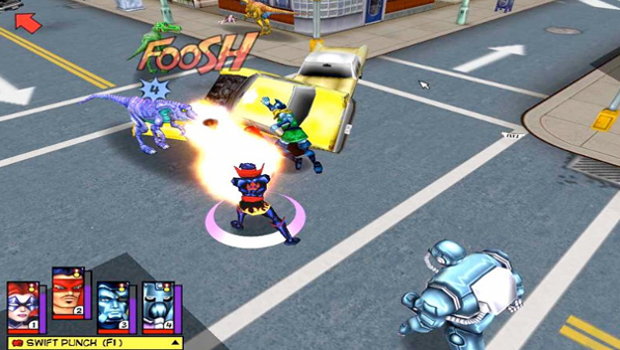
The market gets flooded, but a few titles stay strong
As we went through the late-90s and into the new millennium, comic book games had become a mostly bankable staple of the video game industry. More games were produced, more fans ate them up, and more money was made. Cha-ching. The majority of early 3D era comic games were forgettable as a result of this influx--well get to those in a second--but a few titles managed to be worthy of any true believers time. The first two Marvel vs. Capcom fighters took over arcades around this time, for instance; Spider-Man--the action game released in 2000, that is--delighted fans by letting them swing around a 3D New York City; and brawlers like Comix Zone and Marvel Super Heroes earned the respect of fans shortly before that.
But perhaps the most revered comic book game of the early 00s was Freedom Force, a 2002 tactical RPG from Irrational Games that technically wasnt an actual comic book game. Instead of licensing existing characters, Irrational crafted its own group of heroes that were spiritually based on the 50s and 60s era of comic heroes. Its delightfully lighthearted style and deep character customization system have made it a cult favorite since its release, and it even had its story recounted in a six-issue comic book series a few years later. As fun as it was though, its hard to believe its developer would go on to create BioShock.
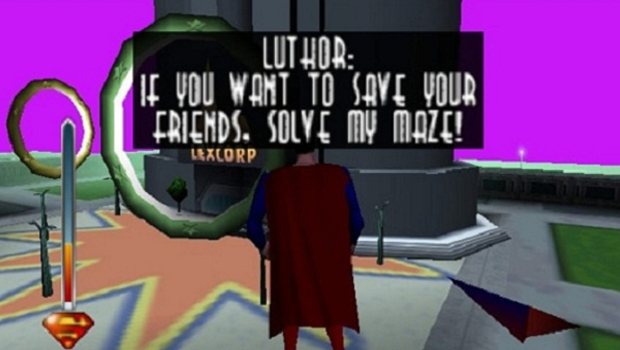
Superman 64 and too many others bring the boring
Weve mostly described the handful of noteworthy comic book game successes so far, but wed be remiss not to mention the kinds of titles that made players associate this so-called genre with mediocrity for so many years. The most popular punching bag amongst terrible comic book games is still 1999s Superman--aka Superman 64--which wasted the Superman license with a boatload of technical issues, broken AI and controls, and a nonsensical premise that forced players to fly through a series of Lex Luthors floating rings. It was a trainwreck.
But while Superman 64 may be the reached the lowest lows, it was far from the first. Acclaims 1997 take on the Fantastic Four, for instance, was a dud with its poor production values and bland repetition. The Incredible Hulk: The Pantheon Saga phoned it in that year too, as that one stuck the big green guy in a limp platformer with no cohesive plot. And in general, a glut of offensively average or completely unmemorable titles--from Batman Forever to Spawn: The Eternal to Iron Man and X-O Manowar in Heavy Metal to literally dozens of others--had been produced despite their repeated failures. With only occasional exceptions, comic book games mostly made their money by perpetuating a cycle of slapping on a big name, raising faithful fans hopes, and letting them down accordingly. Then they did it again. And again.
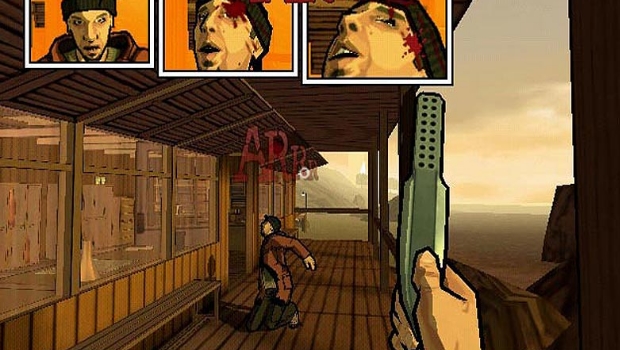
Spider-Man 2, City of Heroes and more restore hope
Thankfully for those fans, comic book games began a rise to collective respectability in the mid-2000s. There still werent many must-play experiences out there, but a larger chunk of the comic book game overflow was well-built and enjoyable. It felt like people were trying again. Beat-em-ups and fighters had grown less popular by this point, so this era saw more superhero titles experiment with then-trendy genres like open-world games or MMOs. And just in general, the profile of comic book games grew alongside an endless stream of blockbuster comic book films.
Here are some of the better examples: In 2004, Treyarchs adaptation of Spider-Man 2 set the gold standard for open-world superhero games. That same year, Raven Softwares X-Men Legends brought the Wolverine and company back to prominence with its strong combat and easy cooperative play. Volition, the dev that would later create Saints Row, captured the ludicrously violent spirit of The Punisher with its 2005 third-person shooter. NCSofts City of Heroes became the grandfather of comics-style MMOs and one of the best games in a genre that would soon be dominated by World of Warcraft and its clones. Ubisofts XIII didnt quite live up to its lofty pre-release hype, but it still provided a fine stealthy FPS and some gorgeous cel-shaded looks. Treasures Astro Boy: Omega Factor for the GBA mixed frantic beat-em-up action with technical beauty. We could go on, but its easy to see that comic book games starting to shake some of its infamy.
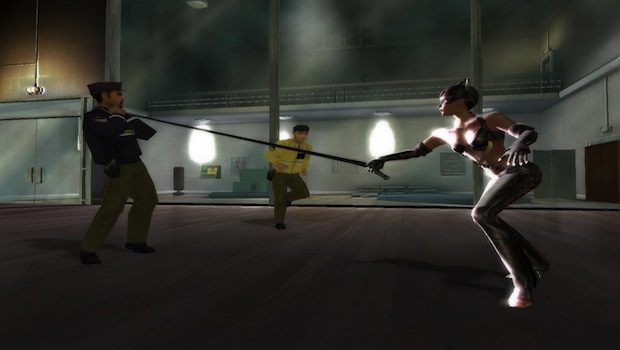
while Aquaman, Catwoman and more dish out disappointment
Well, not all comic book games. Rest assured, game makers were still pumping out plenty of clunkers alongside those more respectable adventures. And while we know any style of games is going to have its ups and downs, some of the comics-based titles released during the mid-2000s werent just bad--they were depressing.
Take 2004s Catwoman, for example, whose unwieldy camera and inaccurate controls made it almost as tedious as the Halle Berry movie on which it was based. Or 2003s nigh unplayable Batman: Dark Tomorrow, which set a new low for an IP already known for its subpar game adaptations. Or the lifeless and repetitive Aquaman: Battle for Atlantis. Or almost every TMNT game released during this time. Even Clark Kent made an ignoble gaming resurgence with 2006s Superman Returns, which was wonky, ugly and featured a tornado (a tornado!) as its final boss. There were others too. Things were getting better during these years, but uninspired works like these continued to stunt the publics perception of comic book games at large.
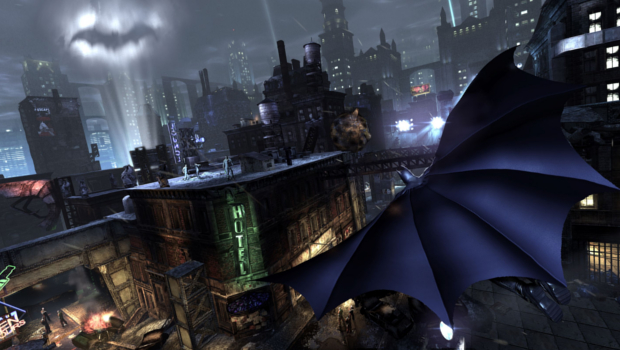
Batman: Arkham Asylum leads a comic book game resurgence
This brings us to the early days of the current generation of consoles, a time when the general sense of improved comic book game quality continued its upward ascent. Companies were still releasing a large amount of comics-based games and movie tie-ins each year, so failures like 2008s Iron Man, 2009s Watchmen: The End is Nigh, 2011s Thor: God of Thunder, and the like were far from going away. But anyone who surveyed the comic book game landscape at this time could see that the times were beginning to change. A wave of varied and impressive comic book games based on both big-name and small-scale IPs took shape, which greatly helped make todays climate one where players dont have to assume the worst whenever they see another comic book game on the horizon.
There were many great games that helped make this happen, but the highest-profile and most universally-acclaimed ones were Batman: Arkham Asylum and its sequel, Batman: Arkham City. By stuffing the Arkham world with fan service and pieces of Batman lore, staying faithful to the tone and style of the best Batman comics, and, most crucially, crafting the whole package around a superb stealth-action game that mandates players to do as Batman would do, Rocksteadys Arkham games have become perhaps the best examples of effectively translating the spirit of a comic book IP into a video game. They sold well, and Batmans video game renaissance has carried on to today.
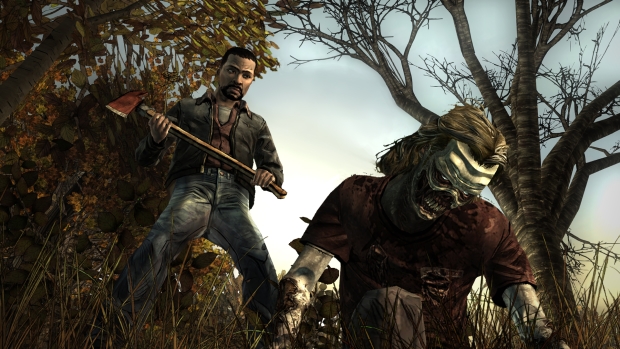
while The Walking Dead and others keep the momentum going
While its easy to think of Batman: Arkham Asylum as the lone masterpiece that has legitimized modern comic book games, the reality of the situation isnt so singular. The Arkham games may have led the charge, but a diverse array of well-made comics-based games have collectively expanded peoples expectations of the style for the better.
Telltales The Walking Dead series may be the best example of this, as GamesRadars 2012 Game of the Year simultaneously revived the adventure game genre for the mainstream and raised the bar for what players expect out of game writing. Like the best comic book games, it was the kind of experience that wouldve been great without the comics IP but was all the more captivating because of how deeply it dove into the source materials lore. Similar praise could also apply to many other recent comics-style games like 2010 beat-em-up Scott Pilgrim vs. The World, 2009 open-world comics homage inFamous, or last years The Darkness II. And even more titles like Penny Arcade Adventures: On the Rain-Slick Precipice of Darkness, Marvel vs. Capcom 3: Fate of Two Worlds, the LEGO Batman series, X-Men Origins: Wolverine, Aliens vs. Predator (the 2010 version), and others slowly but surely restored some faith in the would-be genre too.
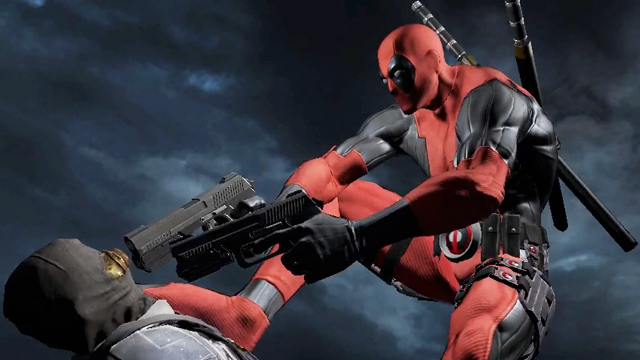
The comic book game train will keep on chugging
This revamped sense of general goodwill towards comic book games has carried on up until today. Popular culture is still throwing its money at just about any comic book movie that has been released in theaters, reading comic books themselves is still en vogue, and the busy release schedule of comic book games shows no signs of slowing down soon.
There may always be a healthy dose of comics-based mediocrity, but hopefully upcoming titles like Batman: Arkham Origins, Deadpool, Marvel Heroes, The Wolf Among Us, and Infinite Crisis can keep the recent good times rolling. They all look promising, but lets be honest: These things have been around for much of video games history, so these capes and cowls arent going anywhere.
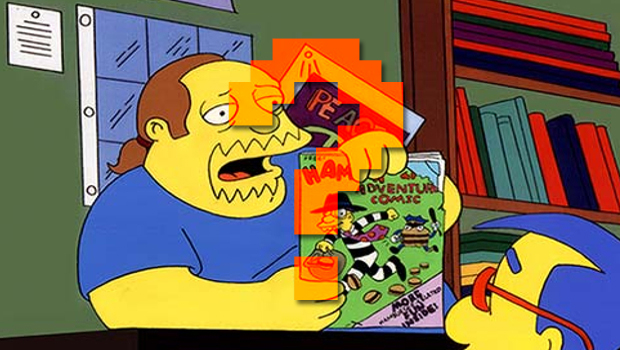
With great power
And so we turn the page on our history of comic book games. There have been some good ones, lots of bad ones, and quite a bit of digital spandex over the years. We remind you that covering the history of an entire style of video games in one article is inevitably going to lead to some details being left out, but feel free to give us a shout in the comments if you think we missed anything major. Until next time, true believers.
But if youd still cant get enough of these masked avengers and caped crusaders, be sure to check out our list of 11 M-rated comic book games that deserve to be made or our take on nine great comic book games that dont star superheroes.
Weekly digests, tales from the communities you love, and more
You are now subscribed
Your newsletter sign-up was successful
Want to add more newsletters?

Every Friday
GamesRadar+
Your weekly update on everything you could ever want to know about the games you already love, games we know you're going to love in the near future, and tales from the communities that surround them.

Every Thursday
GTA 6 O'clock
Our special GTA 6 newsletter, with breaking news, insider info, and rumor analysis from the award-winning GTA 6 O'clock experts.

Every Friday
Knowledge
From the creators of Edge: A weekly videogame industry newsletter with analysis from expert writers, guidance from professionals, and insight into what's on the horizon.

Every Thursday
The Setup
Hardware nerds unite, sign up to our free tech newsletter for a weekly digest of the hottest new tech, the latest gadgets on the test bench, and much more.

Every Wednesday
Switch 2 Spotlight
Sign up to our new Switch 2 newsletter, where we bring you the latest talking points on Nintendo's new console each week, bring you up to date on the news, and recommend what games to play.

Every Saturday
The Watchlist
Subscribe for a weekly digest of the movie and TV news that matters, direct to your inbox. From first-look trailers, interviews, reviews and explainers, we've got you covered.

Once a month
SFX
Get sneak previews, exclusive competitions and details of special events each month!
